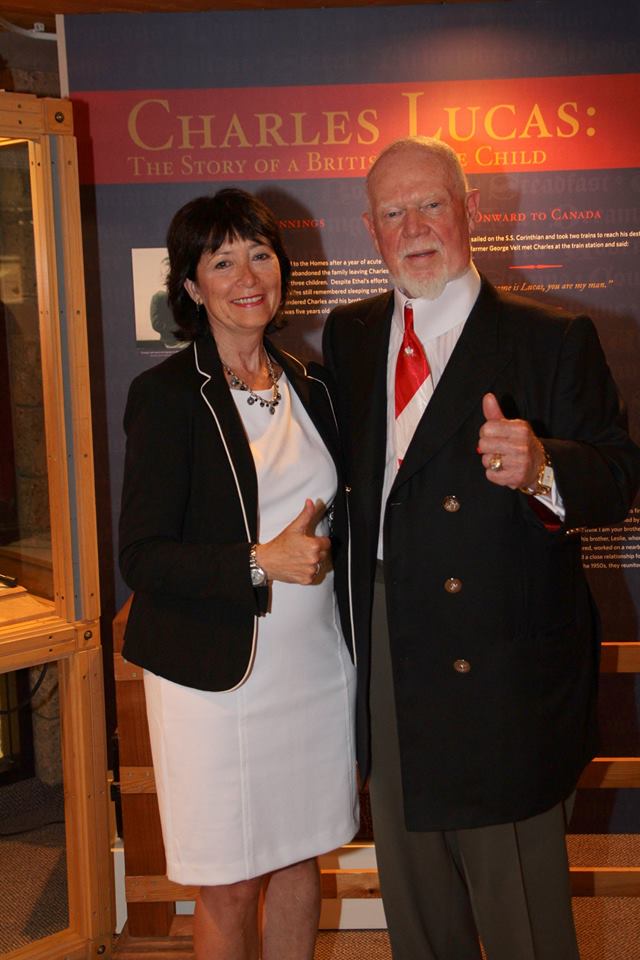Sandra Joyce, with personal connection to issue will speak at event Tuesday evening
By Editorial Staff April 10, 2017 Events, Local News

Photo credit of Sandra Joyce and Don Cherry by Paul Jackson
Sandra Joyce, a Toronto writer known for helping to facilitate an official apology for the actions of the British government in sending more than 100,000 children to Canada, is taking her story to Sarnia Tuesday evening, when she will speak to the monthly meeting of the Sarnia Historical Society at the Sarnia Library Theatre. The free presentation begins at 7:30 p.m.
Joyce, a published author, has become a well-known advocate on the issue since she realized her own family connection in 2004.
The British Home Children scheme, which was initially motivated by social and economic forces, saw churches and philanthropic organizations sending orphaned, abandoned and pauper children to Canada and other Commonwealth countries between 1869 and 1932.
While many believed that the children would have a better chance for a healthy, moral life in rural Canada, families here often welcomed them as a source of cheap farm labour and domestic help.
Unfortunately, as Joyce found when she discovered her own father and uncle were sent to Canada from Scotland in 1925, the scheme often resulted in families being separated.
“My father was just 15 when he arrived in Canada,” said Joyce. “I thought he was an adult but being so wrong explains why he was a quiet, reserved man who had difficulty with emotional connections.”
The program also resulted in children facing malnourishment.
Since bringing the issue to the forefront through her book, “The Street Arab,” Joyce has spoken with numerous descendants of the British Home Children era.
She her self was instrumental in securing an official apology to British Home Children in the House of Commons, which was issued on February 16, 2017.
Joyce said she regrets that her father didn’t have the opportunity to tell his story. She hopes to pass on what her father “was too ashamed” to reveal about his experience.
“When you look at a group that large, it has an effect on the development of a country,” she said. “It would have helped as a family to be able to talk about it. It’s a Canadian story that should be taught. We all need to know about our heritage and it doesn’t matter if you’re directly connected or not.”
Joyce found about her father’s experience by typing in his name into a database at the Canadian Museum of Immigration at Pier 21 in Halifax, N.S. That was in 2004, two years after her father had died.
More information on the issue is available at http://britishhomechild.com/.